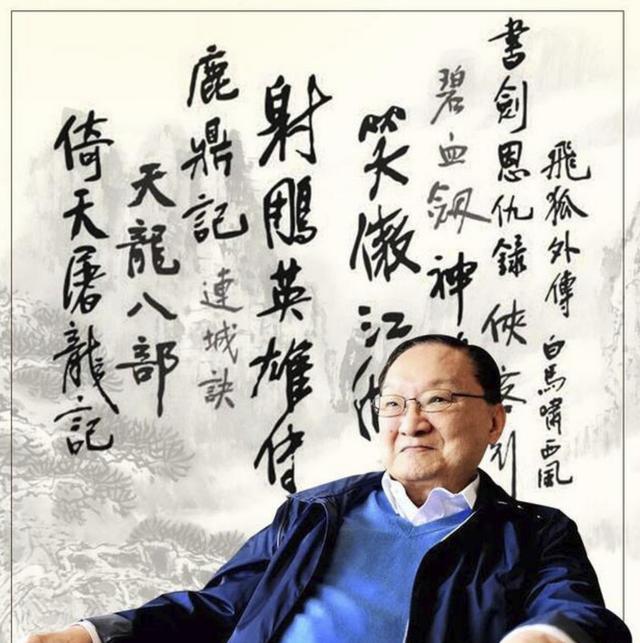Last week I mentioned that there are three wuxia authors who are credited with creating the genre as we know it today. This week, I decided to look into why. I chose Jin Yong to start with, because many sources claim that he is the greatest and most popular wuxia writers of all time. Some say that within China, Jin Yong’s novels have the cultural cachet of Harry Potter and Star Wars. Combined. Which is an extraordinary comparison. Especially considering how little known he is in western pop culture. So who exactly is Jin Yong?
Well, for starters, Jin Yong is the pen name of Louis Cha, one of Hong Kong’s most popular writers. He was a journalist who first started publishing serialized wuxia novels in 1955. Over the next 17 years he wrote 15 novels, all of which have gone on to be adapted into various films, television shows, and radio dramas. He was also heavily involved in politics, and many of his books have political undertones. For this reason, his books have been banned at various times by both China and Taiwan. However, this did not stop his stories from becoming wildly popular across multiple generations of readers.
I read several articles this week about Jin Yong, all of which tried to explain to a western reader why he is so popular and beloved. They talked about the quality of the writing and the depths of the relationships between the characters. About how Jin Yong’s novels focus on the value of right and wrong and the forces of duelling loyalties. Not to mention the historical context he often brought to his stories. But the thing I found most interesting was the fact that these explainers were needed at all. Jin Yong’s books have sold over 300 million copies worldwide. His characters are as familiar to millions in the east as Luke Skywalker is to millions in the west. And yet the first English translation of his most popular book wasn’t published until 2018?
It seemed odd to me that stories this popular would take so long to be translated into English. But the more I learn about Chinese literature, the more it makes sense. Chinese literature (so I’ve been told) often relies on a deep well of shared cultural texts and contexts. It is full of allusions and references, and it’s deeply steeped in poetry. That’s why many people thought Jin Yong’s works would be impossible to translate. But not anymore. His most popular book, The Legend of the Condor Heroes, was finally translated in 2018, and yes, I’ve been reading it all week. And loving it, I might add.
Do I feel like there’s a lot of references and cultural nuances that I’m missing? Absolutely. Is that an insurmountable barrier to reading and enjoying this book? Absolutely not. The Legend of the Condor Heroes is about warring factions and the innocent people who so often pay the price for political ambition. It’s about fathers and sons and the quest to avenge a loved one’s death. And it’s about the complexity of relationships that are born out of war and trauma. Sounds like universal stories and themes to me.
But there is also something distinctly different about the experience of reading this book. Even translated into English, the style, syntax, cadence, and narrative flow are all different. Or at least different from what I’m used to. And that’s what I love about it. It’s a fascinating read on all levels, and I can’t wait to keep going. Yes, I said keep going, because no, I haven’t finished it. The Legend of the Condor Heroes is longer than the entire Lord of the Rings trilogy. In fact, it’s so long, the English translation was divided into four volumes. I’m still making my way through the first volume, because sadly I cannot spend all my time doing The Daily Hart. But that just means I have plenty to keep me going for the rest of the month. And I am very much okay with that.
One last note. Jin Yong is so revered and important to Chinese culture, there is a whole area of academia dedicated to the study of his works. It’s called Jinology, and I love that.
Happy Sunday all.
Suggestions for artists I should check out? Please contact me with your ideas. I hope you enjoyed your daily helping of art!



